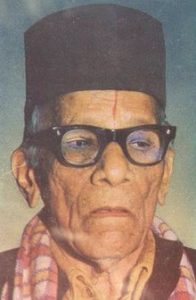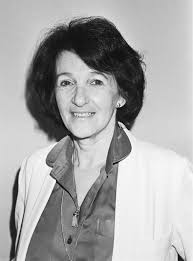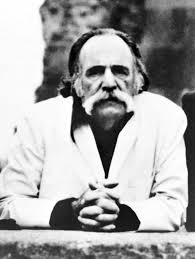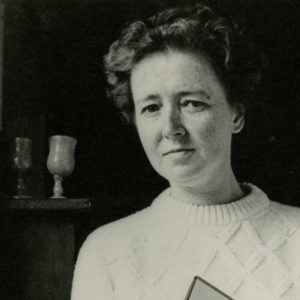We have decided to create the most comprehensive English Summary that will help students with learning and understanding.
Albert Einstein At School Summary in English by Patrick Pringle
Albert Einstein At School by Patrick Pringle About the Author
| Author Name | Patrick Pringle |
| Born | 1917 (age 103 years), London, United Kingdom |
| Books | Jolly Roger: The Story of the Great Age of Piracy |
| Nominations | Edgar Award for Best Fact Crime |

Albert Einstein At School Summary in English
Young Albert Einstein was studying for his diploma in a school in Munich, Germany. He hated learning dates and facts by heart. This forever displeased Mr Braun, his history teacher. Despite his teacher telling him the date of the year that the Prussians had defeated the French at Waterloo, Albert failed to recall them. He candidly confessed that he did not see any point in learning dates as they could be looked up in books.
The teacher was infuriated and said that it applied to most of the facts taught at school. He also taunted him calling his views the “Einstein theory of education”. Albert argued that it was ideas that were important. He was not interested in knowing when the battles were fought but why they were fought.
Mr Braun was shocked and furious. He believed that Albert had no desire to learn and was wasting his father’s money. He punished him by detaining him for an extra period at school. Albert was miserable when he went to his lodging. His father, being poor, had got him a room in an area that was ugly. Albert had no comfort there and did not like the food there. The atmosphere was bad as his landlady kept beating her children and her husband came drunk and beat her. All this made him miserable and what was worse, he had to go to a school that he hated.
Albert was interested in reading books on science. He read about geology that was not taught in school. His cousin Elsa pointed out to him that it would not help him pass his diploma but he said that he did so because he liked reading. He also liked playing the violin and played it till the landlady stopped him. Also, the wailing and howling of the children irritated him.
He had only two friends—Elsa and Yuri. Elsa lived in Berlin, where her father had his business. She visited him occasionally. She encouraged him in his studies and tried to assure him that it was not difficult to pass his examination. All he had to do was learn like a parrot, like stupid boys who did that and passed.
Yuri was a student, who shared his accommodation with the others, and felt Einstein was fortunate to have one to himself. Yuri also told him about the uncivilised students who studied with him, who fought with one another. The authorities did not take action and merely told them not to engage in these fights.
Albert told Yuri, he was convinced that he did not want to continue school but if he went back to Milan he would be sent back. He had a plan. If a doctor certified that he had a nervous breakdown and it would be bad for him to go back there, he could get away from it.
Yuri knew of no doctors but referred him to his friend, a medical student, Ernst Weil. He asked Albert to tell him of his problem honestly. Albert was a sensitive boy and worry made him nervous. By the time, he went to the doctor, Yuri had told him everything. The doctor had been a student till recently and understood his problem. He said that had Albert not been close to a nervous breakdown he would not have gone to a doctor. So he certified that Albert keep away from school for six months.
Albert took Yuri to supper for this favour but Yuri informed him that eventually he would have to go back to school. But Albert decided to meet the head teacher and said that he hoped to get a recommendation from his teacher of mathematics, Mr Koch. On Yuri’s advice he went to Mr Koch first. Mr Koch admired Albert and confessed that he could not teach Albert anymore, rather he could leam from him. Albert got a recommendation from him that said, he was fit to join an institute for higher education in mathematics.
However, before he could go to the head teacher, he was summoned. The teacher informed him that he was not prepared to keep him in school, as his work was horrible, he was a rebel and hindered teaching work in class. Albert did not have to use his medical certificate as he was expelled from school. He was happy leaving the place where he had spent five miserable years.
He just wanted to meet Yuri before leaving as Elsa was in Berlin. Yuri hoped that he would be happy in Milan.
Albert Einstein At School Summary Questions and Answers
Question 1.
“I think it’s not facts that matter, but ideas.” To whom did Einstein say this and why?
Answer:
Einstein said it to Mr Braun, the history teacher, in his Munich school. He hated learning dates and facts by heart. He argued that ideas were more important than rote learning. He was not interested in knowing when the battles were fought but why they were fought.
Question 2.
Do you think Albert is being impolite while answering the history teacher’s questions? Give your reasons.
Answer:
Though Albert addresses his history teacher politely, he is being impudent. If he did have a problem, he should have spoken to the teacher separately. Questioning the teacher’s views on education in a class was impolite and rude.
OR
Albert addresses his history teacher politely. His answers are straightforward and blunt but his opinions are strong. A firm conviction cannot be termed as rudeness.
Question 3.
What characteristic of Einstein’s nature is highlighted by the exchanges between him and the teacher?
Answer:
The exchanges between Einstein and the teacher show him to be a person with firm convictions; he is frank and straightforward. Even at the cost of punishment he is not willing to compromise on his views. He comes across as one who will chart his own course rather than follow the beaten track.
Question 4.
Why did Albert see no point in learning dates and facts?
Answer:
Einstein told Mr Braun, the history teacher, “I think it’s not facts that matter, but ideas.” He hated learning dates and facts by heart. He argued that ideas were more important than learning by rote. He was not interested in knowing when the battles were fought but why they were fought.
Question 5.
What was Einstein’s reaction to the history teacher’s sarcasm?
Answer:
Mr Braun, his history teacher, was unhappy with Albert unwilling to leam facts or dates. When he admitted that he did not see any point in learning dates, the teacher taunted him by calling his views the ‘Einstein theory of education’. Albert argued that it was ideas that were important but nevertheless, felt miserable.
Question 6.
Why did Albert feel miserable when he left school that day?
Answer:
When he left school that day, Albert felt miserable because his day at school, like most other days, had been bad and he had gotten into an argument with his teacher for which he had been punished. Secondly, he had to go back to the same school the next day. Moreover, the idea of going back to his lodgings with the atmosphere of domestic violence did not cheer him up.
Question 7.
Why and what did his history teacher report to the head teacher?
Answer:
Mr Braun was shocked and furious with Albert’s candid reply. He believed that Albert had no desire to learn and was wasting his father’s money. He punished Albert by detaining him after school. He also reported to the head teacher that his work was horrible; he was a rebel and hindered teaching work in class.
Question 8.
Albert was equally unhappy at his lodging. Why?
Answer:
Albert was miserable at his lodging. His father was a man of modest means, had got him a room in an ugly area. Albert.had no comfort and did not like the food there. The atmosphere was bad as his landlady kept beating her children and her husband came drunk and beat her.
Question 9.
What did Yuri say to him about violence in the hostel?
Answer:
Yuri told Einstein that he was fortunate to have an accommodation to himself. The people around him were poor but not uncivilized like the ones with whom he shared his accommodation. Yuri also told him about the uncivilized students, sharing his accommodation, who fought. The authorities did not take action but merely told them not to do so.
Question 10.
Who was Elsa? What was her advice to Albert?
Answer:
Elsa was Einstein’s cousin who lived in Berlin. She visited him of and on. She encouraged him in his studies and tried to assure him that it was not difficult to pass his examination. All he had to do was learn like a parrot, like the stupid boys who did that and passed.



